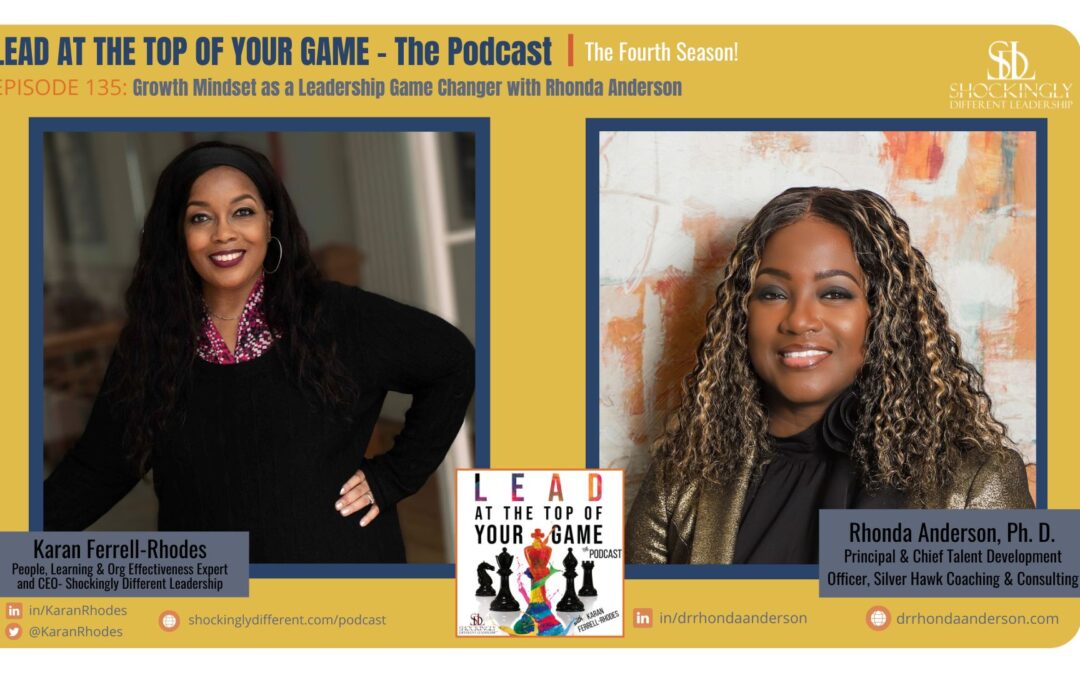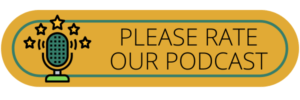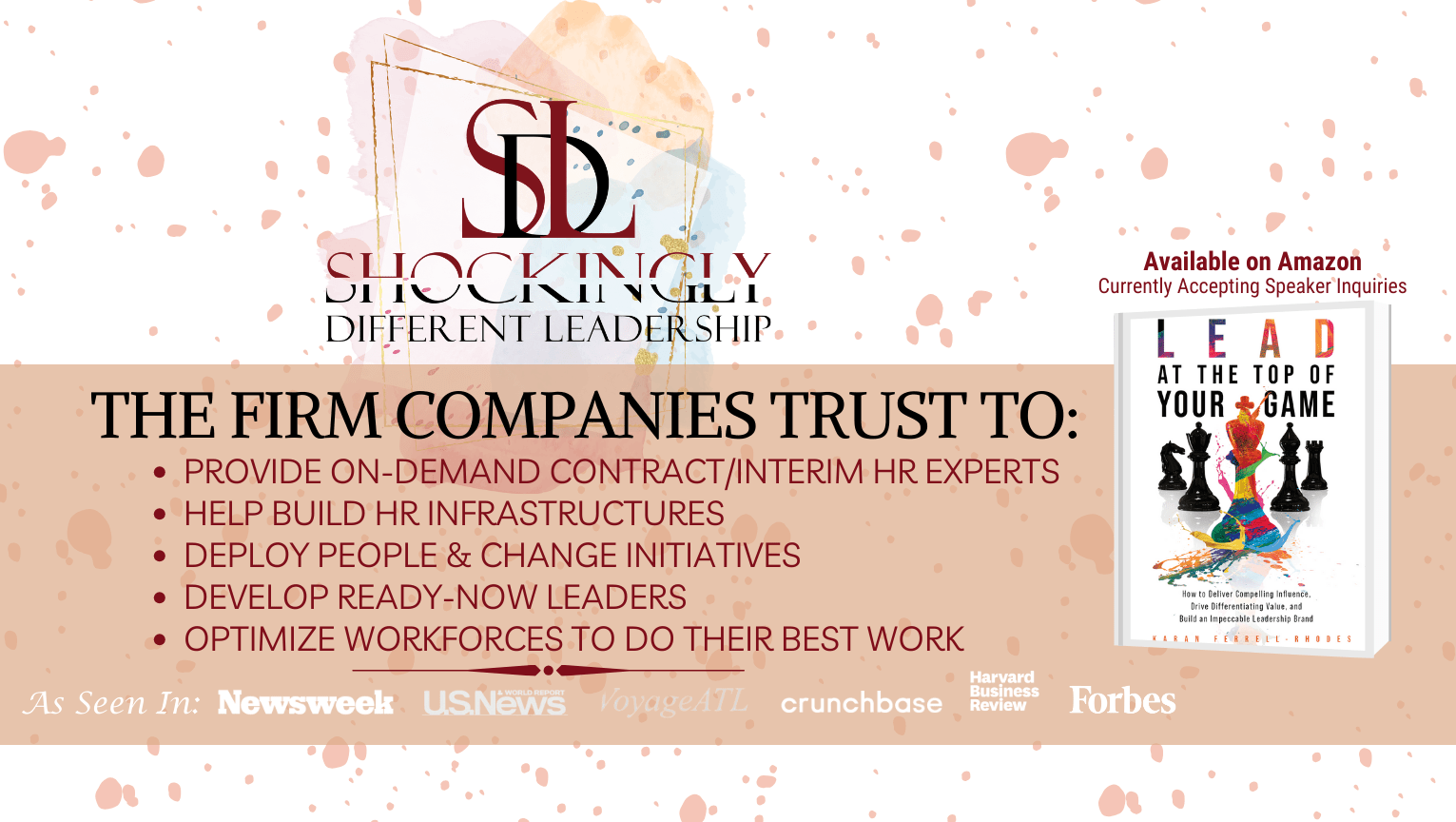IN THIS EPISODE, KARAN FERRELL-RHODES INTERVIEWS DR. RHONDA ANDERSON
Dr. Rhonda discusses her path from being a first-generation college graduate to founding Silver Hawk Coaching and Consulting after years of experience in talent development across various industries. She shares how her personal journey and expertise inspired her to help leaders and organizations grow. She highlights her book, The Influential Leader Blueprint, which offers practical tools for building trust and fostering growth mindsets.
Dr. Rhonda Anderson is the Principal & Chief Talent Development Officer at Silver Hawk Coaching and Consulting offers services including building talent infrastructures, leadership development cohorts, executive and team coaching, and team dynamics facilitation. Rhonda emphasizes the importance of trust, emotional intelligence, and adaptability, positioning her company as a resource for organizations aiming to develop strong, people-focused teams.
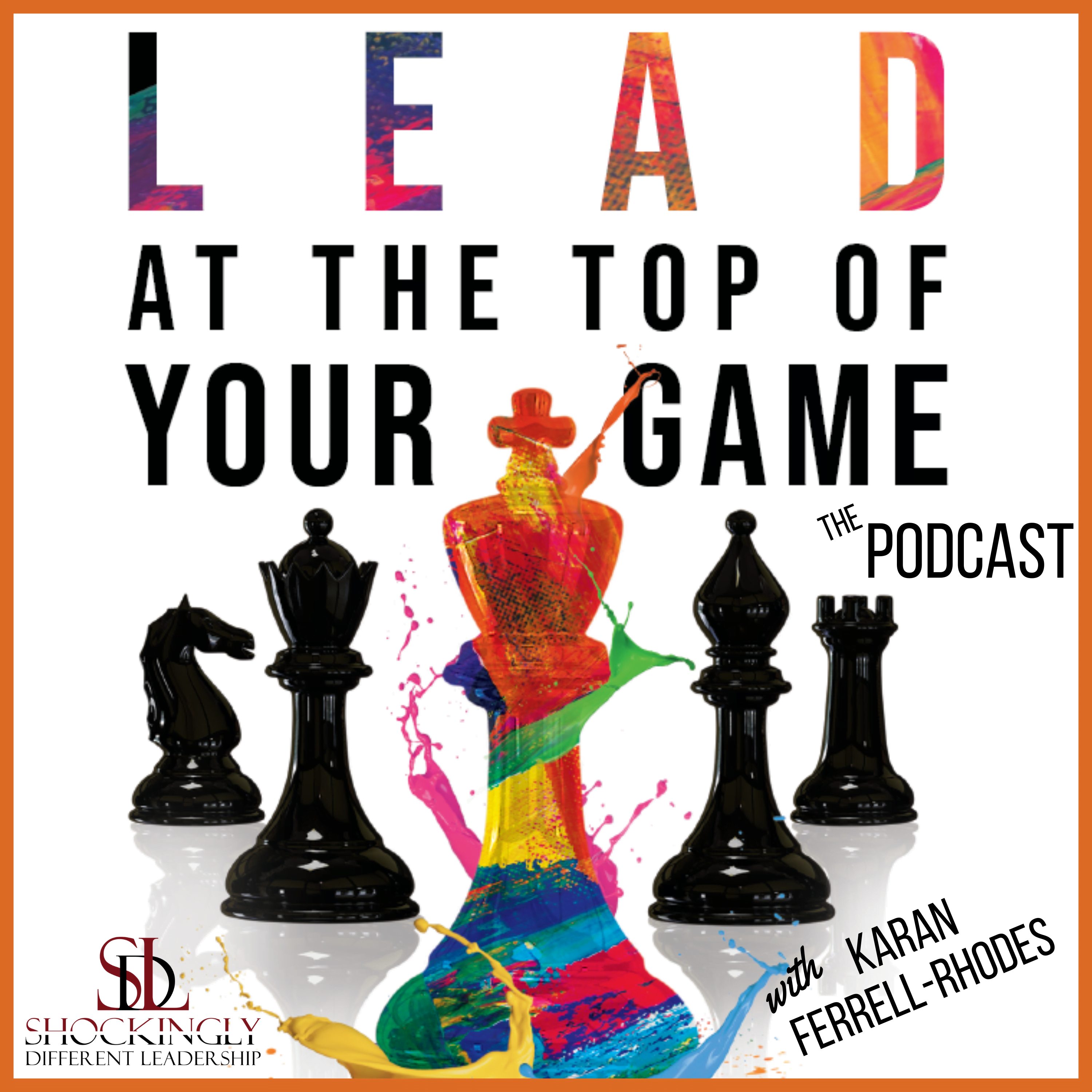
Posted by
SDL Media Team
Rather view our video podcast?

WHAT TO LISTEN FOR:
- Rhonda’s journey from first-generation college graduate to founder of Silver Hawk Coaching and Consulting
- The pivotal moment that inspired Rhonda to start her own business
- What services does Silver Hawk Coaching and Consulting offer to organizations and leaders?
- Insights from Rhonda’s book, The Influential Leader Blueprint—what practical tools does it provide?
- How does Rhonda define and build trust within teams?
- What are the biggest challenges leaders face today, according to Rhonda?
- How can leaders foster a growth mindset and resilience in themselves and their teams?
- In what ways does emotional intelligence impact leadership and workplace culture?
“If you are not catering your services to the needs of your customers, you are going to be left behind.”
FEATURED TIMESTAMPS:
[0:36] Rhonda’s background
[2:02] Educational journey
[6:21] Founding Silver Hawk
[10:43] Silver Hawk services
[12:52] The Influential Leader Blueprint
[16:26] Signature Segment: Rhonda’s entry into the LATTOYG Playbook: Building team trust by showing genuine interest in employees’ lives
[20:42] Workplace trends
[24:46] Growth mindset advice
[28:01] Signature Segment: Rhonda’s LATTOYG Tactic of Choice: Leading with Intrapreneurship

ABOUT DR. RHONDA ANDERSON
Dr. Rhonda Anderson is the Principal & Chief Talent Development Officer at Silver Hawk Coaching & Consulting and Co-founder of The Influential Leaders Alliance. A Certified Professional Coach and leadership strategist, she holds a Ph.D. in Higher Education Leadership from Mercer University and brings over 15 years of experience designing and leading enterprise-wide learning, leadership, and talent development programs. Dr. Rhonda empowers professionals through coaching, speaking, and consulting. She is the author of The Influential Leader Blueprint and is dedicated to helping leaders elevate their impact, transform teams, and achieve sustainable success.
LINKS FOR DR. RHONDA:
- Website URL: www.drrhondaanderson.com
- LinkedIn: www.linkedin.com/in/drrhondaanderson
- Facebook: https://www.facebook.com/drrhondaanderson/
- Instagram: https://www.instagram.com/drrhonda_anderson
EXTERNAL RESOURCES MENTIONED IN THIS EPISODE:
- Dr. Rhonda’s book: The Influential Leader Blueprint
ADDITIONAL RESOURCES FOR YOU:


Episode Sponsor
SDL is the go-to firm companies trust when needing to:
- supplement their in-house HR teams with contract or interim HR experts
- implement leadership development programs that demonstrate an immediate ROI and impact on the business

Episode 136 | Growth Mindset as a Leadership Game Changer with Rhonda Anderson
Rhonda Anderson 00:00
Because a lot of times we think I have success when I’ve done. Something perfectly or it’s successful, but sometimes there are opportunities to learn in those you know, in those duties or role responsibilities that we may have, and it may not be that it was successful, but it was a learning experience, and not beating ourselves up because it wasn’t successful, right? We have to see that for us, but then you also have to see that for your team members as well.
Voiceover 00:03
Welcome to the “Lead at the Top of Your Game” podcast, where we equip you to more effectively lead your seat at any employer, business, or industry in which you choose to play. Each week, we help you sharpen your leadership acumen by cracking open the playbooks of dynamic leaders who are doing big things in their professional endeavors. And now, your host, leadership tactics, and organizational development expert, Karan Ferrell-Rhodes.
Karan Rhodes 00:36
Hello there, my superstars. This is Karan, and welcome to another episode of the lead of the top of your game podcast I am just super thrilled to have on today’s show, Dr Rhonda Anderson, who’s the principal and chief Talent Development Officer of Silver Hawk coaching and consulting. Now she is also the co founder of the influential leaders Alliance and author of the influential leader blueprint, which is dedicated to helping leaders elevate their impact, transform their teams and achieve success, sustainable. Sorry, success. And I just cannot wait to learn more about her work and what she’s doing to help empower leaders of both now and the future. So welcome to the podcast. Rhonda,
Rhonda Anderson 01:21
Thank you so much. Karan, I am super excited to be here.
Karan Rhodes 01:24
Oh, I am just over the moon to have you. And as we shared in our pre conversation, I’ve been waiting on bated breath to get to our conversation, and I know already we’re not gonna have enough time for everything we want to cover, but I want to do our best to to have make sure we have plenty of time for you to share your insights with our listeners, if that’s okay, but before we dive deep into kind of your background in the work that you’re doing, we always love to learn just a tad bit more about our guests. So for just as much as you feel comfortable, can you give us a sneak peek into your life outside of work.
Rhonda Anderson 02:02
Yes, well, I was born and raised in South Georgia, Albany, Georgia, and grew up there and went to all the schools there. I graduated from West Dover high school, went to now Albany State University. Then I moved on to get a master’s degree from Keller Graduate School of Management and got my PhD from Mercer University in the metro Atlanta area. And I’m a first generation college graduate and the first person in my family to ever hold a PhD, yes, and so I feel sometimes, you know, you feel the pressure of that, but yes, I think it’s helped our family, though it’s been a really good experience for them to see. I know a lot of times it’s all about access and really exposure to things, and so I think it has really helped our family’s trajectory for the better. I am married. I live here in the metro Atlanta area now, and I have three sons, so my household was full of testosterone,
Karan Rhodes 03:04
I can imagine,
Rhonda Anderson 03:05
Yes, and my husband too, so he just added icing on the cake to that. So…
Karan Rhodes 03:10
Of course, of course, but I’ve I bet it accounts for some interesting times, right?
Rhonda Anderson 03:18
Very interesting. And so now they’re all young adults, and so I am thrilled for that, but then, you know, you sometimes miss them being little ones as well. And yeah, jobs I probably could have ever had in life, ever.
Karan Rhodes 03:31
Okay, so we have so much in common on so many levels, and my listeners know is all no holds barred with me, so I’m just gonna share just a little bit about that. So I’m a recent empty nester myself, my husband and I so, so you’re right. I do miss the the small when they were smaller, but after I got over the shock of them going to college and moving out, you kind of get used to it. It’s really cool. So there is light at the end of the tunnel, listeners, if you’re in the early stages of family. And then the other thing I just wanted to share is that, how about my family is from Albany and Leesburg? Are you kidding me? Yes, no joke. Oh my god. Both sides of the family, my both my parents went to Albany State. It was called College, then Albany State College, which, although I went to UGA, I still support Albany State, because the most of my family on my father’s side went there as well. But so I know about the small towns. So I was like, oh my god, we have so many other connections. We’ll have to catch up after the podcast and talk about it.
Rhonda Anderson 04:49
Oh my gosh, it’s so rare that I meet someeone from…like the South Georgia part
Karan Rhodes 04:55
I know, very rare. I. Yeah, okay, I’m gonna say one thing, and then we’re gonna get to the podcast. You know anything about Jim Bees?
Rhonda Anderson 05:07
Jimmy B’s?
Karan Rhodes 05:09
What is a hot dog place called?
Rhonda Anderson 05:11
Jimmy hot dogs.
Karan Rhodes 05:12
Jimmy hot dogs. That’s it, that’s it.
Rhonda Anderson 05:16
You up on that, girl. We wouldn’t touch it with a 25,000 foot pole. It 1000 foot pole.
Karan Rhodes 05:27
That’s right, it’s been ages, ages since, uh, knew anything about that, because they haven’t, you know, gone. Uh, they’re like a probably 20 plus years. But that was a that was a running joke in our family about always having to go and get a hot dog. So from there, that’s amazing. Well, okay, well, let’s refocus and then focus on our listeners, and thank you listeners for letting me catch up a little bit, because we might be cousins from another family for all we know, we’ll do that after the podcast. But, but Rhonda, I’d love to start out by having you share a little bit with us about your professional highlights, just you know, maybe a few milestones in your past, and then what led you to becoming the leader of silverhawk coaching and consulting,
Rhonda Anderson 06:21
Oh yes, definitely I have been around and so I’ve had 15 plus years of experience in the talent development arena. First right out of college, I started in the commercial insurance industry, move over into the higher education arena. I’ve worked for a nonprofit here in the metro Atlanta area. It was amazing work that we got to do. And so then I moved on to work at a biotech company doing talent development. I’ve also taught in all types of institutions as an adjunct faculty member. So I’ve taught doctoral students, master’s level, undergrads, even the dual enrollment students, you know, who are in high school, but they’re taking college classes. That was an adventure.
Karan Rhodes 07:03
I bet.
Rhonda Anderson 07:07
I have had so many opportunities and so Rewinding back, I got my PhD from Mercer University, and it’s in higher education leadership, and I thought that I was going to be in higher education for the duration of my career, because I had that stint in higher education during my career, and I was there, and I absolutely loved it, but I feel like God had another plan for me and how I would work with institutions of higher education. So I worked more so as a consultant, because once I transitioned to work with the in a nonprofit called Community Sustainability enterprise, and we’ll say CSE, for short, I got an opportunity to go into universities as a consultant and not working in them. And so that was the difference. And so last year, I got laid off from my position at a company that was located in Birmingham, Alabama, and so that was the biotech company that I worked for. And so I was a shock, because I had an expectation to be there, like maybe three to five years, sure, because a nice position where I was able to build a talent infrastructure from the ground up. I’ve never had that opportunity
Karan Rhodes 08:14
That’s so rare, to be able to get
Rhonda Anderson 08:16
Yes opportunity, yes, and it really showed me what I was made of, you know, like, Can I really go in here and design something that would leave lasting legacy, and that, even if I left, can someone else do it, you know, right? And so it was such an amazing experience. But I got the sad news back in May of 2024, that it has some things going on with finances. And I was, of course, one of the people to go and, you know, usually talent development, you’re going to be the first to go,
Karan Rhodes 08:44
Yeah, absolutely, yes.
Rhonda Anderson 08:46
Most times. And so I took that in, and I was like, okay, so what do you do now? Because the job market, it’s still not the greatest for people at all. Right, some roles that are in demand, but like for me, talent development on a director level or higher, those positions are very hard to come by because a lot of those people have been laid off. Yes, so I had an interesting conversation. I spoke with one of the ladies from University of Alabama at Birmingham. We used to work very closely with them, because they helped me carry out the leadership development programs. And so she was our faculty lead. So after it happened, I had a conversation with her, and I was like, Well, you know, I don’t know. You know, what am I going to do? You know, she asked, and she said, Well, I recommend you take some time to smell the roses. And I was like, Well, what do you mean about that? You know? She was like, take some time to really see what your next steps are? She said, Because, honestly, Rhonda, I feel like you could really do this on your own and be just as successful as even going back into a job. She was like, I really want you to consider doing it on your own. And so I took a whole month off from applying to jobs like June and. And I was like, you know, the job market was not giving me anything last year, right? I was like, Okay, well, I have the time, and so I took the time, I put in the work. And I was like, you know, let’s keep it simple. What are the top five things I can do if someone off the street said, Rhonda, I want to work with you. What would those five things be? And so it was all in the talent development arena. I didn’t have any issues. So I was like, Okay, I know it’s talent development that I’m going for. And so that is how silverhawk coaching and consulting was birthed.
Karan Rhodes 10:35
Oh. Amazing! And share also, what are some of the services that you all offer under your company?
Rhonda Anderson 10:43
Yes, of course. So one, if you are, if there are organizations who don’t necessarily have a talent infrastructure in place, remember, I got to build one from the ground up. For the last company I can go in and help build a sustainable talent infrastructure for an organization that may not have it. They may have, like one to two HR people or someone, I can create a structure that they can manage right deliver talent development to their organization. Number two, I can be a fractional talent development person for an organization if they want me to do that as well. So I will just act as the talent development person for them three. I offer leadership and management development cohorts. It’s not just management and leadership development. I offer it in a Cohort Format, because I feel that offering those types of programs in a cohort format will give the greatest transformation for people’s teams, for the teams. And so, you know, we run six to eight months stints of leadership development so that we can really monitor the transformation and ensure that it’s really getting ingrained into the individuals. I can do one off keynote speaking engagements. I also do executive coaching and team coaching as well. And what the last thing is that I offer team dynamics. I’m a certified disc facilitator, yeah, and, and so I offer that as an option for organizations as well.
Karan Rhodes 12:14
Well, you’re a full service talent development specialist, it sounds like
Rhonda Anderson 12:20
Yes, and I do have some independent contractors who assist with this as well. So it’s not just me, you know, when you’re getting me, it’s, you know, I have a team behind me, and they, you know, help to carry it out.
Karan Rhodes 12:32
Oh, that’s amazing, absolutely amazing. So I’m curious as well, if you can share kind of the story of what led you to becoming the author of the Influential Leader Blueprint. And what is, can you give us an overview of what that’s aboutas well?
Rhonda Anderson 12:53
Yes, so, you know, writing a book, it was not anything that I was looking to do Karan. It was like, No, this isn’t the time I need to be about making some dollars, right, right? A book. But I’m a Christian, and God was like, oh, no, you’re gonna write the book. So okay, God, here we go. And then I felt like the book would help establish me as a subject matter expert quickly, because, and you know how you feel apprehensive about entering the field as an independent person? You know you have all these things going on in your head, like, am I enough? Am I qualified enough to do this? And you know, I felt like the writing this book would help establish me as a subject matter expert. But the main reason for writing this book is from all the years of experience that I’ve had in talent development and training leaders and coaching and all the things, right? I noticed that a lot of times they weren’t given any type of blueprint to start the role, right? Because you’re given a promotion as a manager, director, VP, but what if you don’t have the management background, right? You can carry out the job, but you don’t have what it takes to manage the people. And so when we enter into these jobs where there’s a team involved, you inherit the people too, and you have to learn how to be people centric and people focused. And so this book, it covers a great amount of things is a lot just power packed. And I have tools, practical tools, you know, because sometimes in me, leadership can seem fluffy, and it doesn’t give the leader enough information. I mean, it gives you knowledge, but not practicality, like what can do right now to become more influential, or to get my teams to listen to me or to give better feedback. And so this book does that. And so we cover having a growth mindset in the book, How to have confidence and lead with clarity, making data driven decisions, like starting to really incorporate data into your decision making, as opposed to winging it right. Because. A lot of teams are winging it. They’re not capturing any type of data. They’re winging it, I know, and, and so, you know, it’s, it’s just amazing, you know, to see it come to life. It’s about giving feedback. You know, how do I manage my team, whether they’re multicultural, you know, virtual, like, how do I manage it and ensure that I’m creating a culture and creating cultivating a culture of growth, you know, for them, for the people, because without the people, we can’t make the money, right? That’s right. So in this book, there are tons of tools that people can go to a website and download and really take action immediately. I love you. While you’re reading it each chapter, there’s a power move in the book that you make before you go to the next chapter.
Karan Rhodes 15:50
I love that. Is there maybe one that you can highlight for our leaders, just to give them a teaser and to I know you’ve listed them, but is there maybe a tool or a piece of advice or recommendation that you can share with our listeners just to give them a little tease of what you’re offering?
Rhonda Anderson 16:18
I’m looking down here. I have so many,
Karan Rhodes 16:22
That’s fine.
Rhonda Anderson 16:26
What I did, what people struggle with is the main struggle is really creating trust. How do you develop trust? So there is a trust mapping download that they can download out of the out of the off of a website that I have. It’s a landing page website, and it will help them come up with ways to cultivate trust within their teams. And it’s really simpler than what people think, because really trust is building relationships. It’s the foundations. But at least you can download this particular worksheet and say, Okay, well, what are some of the ways I can improve on delivering trust after you read the trap chapter about building trust? Is it me being more relational? And I’m not saying BFF, because, you know, that’s, you know, that doesn’t necessarily happen. But how can I show my employees that I do care a little bit for them, right? Like, what’s going on with them outside of their work environment, too. And that’s one of the main ways to build trust, is really having some type of interest in, you know, how did Jimmy do at his baseball game this weekend? People love talking about that stuff. They do, yes, and so, you know, it’s one of the easiest ways, is you as a leader, being relational and building trust. And anytime you show some interest out in their external lives, man, people will run for you for 100,000 miles and won’t give out. I do what else I want to follow you, because you’re showing that you care, you know, and I feel like that’s one of the main things. Is, how do I build trust? Is team building, you know, like, what are some things we can do besides the pizza in the break room? What else can we do outside of that that does not involve the work, right?
Karan Rhodes 18:11
Yes, I just read an article, and I want to say it was in Fortune or something like that, but they were just talking about how lack of employee trust is really impacting engagement and employee satisfaction on the job, and how critical trust is even to getting business strategies done. Because if you have people or employees in companies that don’t trust their leaders or the company, it’s really going to impact business metrics, because they’re not going to give it their all. So I think you’re spot on, on that.
Rhonda Anderson 18:49
That’s right. And have you ever read The Five Dysfunctions of a Team? Have you ever read that?
Karan Rhodes 18:54
I have, I have,
Rhonda Anderson 18:56
Like, that book is like the ultimate tea,
Karan Rhodes 18:59
It is.
Rhonda Anderson 19:00
because the pyramid where trust is at the very base of the triangle, right? And if you can get trust right, you can have lots of success in all the other areas of the triangle. And it’s basically learning more about people outside of work. And I have the workbook in the book, right? Because I do exercises with teams, you know, with that book, some of the exercises in the trust exercises basically talk to us about where you grew up, you know, how you start with tell me something outside of work. The exercises in that book are very simple, simplistic. It’s nothing complicated about building trust. It’s just we have to want to do it and do the work, you know, and be intentional about it. And I think, you know, it’s an opportunity for you to really, I mean, when you enhance trust, you’re going to enhance engagement automatically, because it’s me taking you out for a coffee before work, or me meeting you where you are, like if you had a young child, OH. Oh yeah, sure. You can come in a little bit later. If you can, you know what I’m saying, if you could, I do halfway. Why not? You know. So it’s that trust thing is major, and it baffles me that people don’t necessarily understand it. But it’s all in relationships. Relationships.
Karan Rhodes 20:17
It’s all about relationships. I’m just also curious in especially in your facilitation of classes and coaching of individuals and leaders, What trends are you seeing going on in the workplace right now that people are struggling with or that they enjoy either one.
Rhonda Anderson 20:43
Well, I think the struggle is mastering emotional intelligence. That has been the struggle because I and I, I need to read a little bit more about what the pandemic did to people, because employees have become more vocal about things really getting to them in their mental capacity, and it’s, you know, they’re really being more vocal about what’s bothering them mentally, or, you know, wow, this is bothering my mental health, or, you know, and so I love that, because I remember working and you never told anybody about what you were going through back in the day, right? Yeah, you were seeing it. It was a sign of weakness, but now it shifted to a sign of strength. Yeah, for you to be able to tell your manager, hey, this is what I’m going through. I’m having some mental issues, and I think that managers are challenged because it’s forcing them to be more intentional about being mindful of people and where they are, yeah, I agree, you know, and so I really do think that managers. And I did a presentation a couple of months ago, and it was for the Gwinnett chamber foundation here in Gwinnett County. They are a part of the Gwinnett Chamber of Commerce, and so there they are working with small businesses, and they get them ready for government contracts that arm of the Gwinnett chamber, okay, and and then they teach them about being funded, and, you know, all the things dealing with small businesses. So I had an opportunity to do a presentation on emotional intelligence. And when I ask people, What do you think of when you hear the word emotional intelligence, a lot of them said Fear. And these are entrepreneurs leading their own businesses. They fear it, and they see lawsuits, or, you know, it was just like, Wow. It was all negative. The things that they saw when they heard the word emotional intelligence, like what word flashes in your head? They were all negative. Don’t nobody want to talk about it. Wow. That’s the major struggle right now, entrepreneurs, because it’s, I mean, well, for for business leaders, I’m sorry, and entrepreneurs, because it’s making you, you really have to look be more self aware of you and how you’re responding right to your employees, or how you’re interacting with them, you have to be more mindful. Like, was I really being mean to that person? Was I being fair? You know? Like, am I showing favoritism? Like, what am I doing? You know, because, like I said, they’re becoming more vocal, and they’re not afraid to go above you?
Rhonda Anderson 23:23
No. So, yeah. So the world of work has changed a whole lot. And then I’ll say another struggle is people dealing with remote employees. That has definitely been a struggle. Like, how do you create culture while working virtually, while you have a virtual team? So that’s another one that I see people deal with, and then the other one is dealing with all the generations in the workplace, you know, I hear about that a lot, you know, like somebody like me, you know, because I’m 50 plus right now, and I’m like, no shame, I guess, and no, how do you work with me? But then, how do you work with someone, maybe, older than me, and someone like younger than me, and you could be younger than everybody, and you’re a manager, you know. So how do you manage that, you know? Yes, people are really struggling with that as well.
Karan Rhodes 23:23
I love them. And in your opinion, what are like? What is maybe one or two steps that individuals can really do today to shift their mindset, to be more in a growth mindset or in a sustainable mindset for, you know, whatever role that they’re in right now,
Rhonda Anderson 23:23
I think number one is giving yourself grace, right? So, you know, giving yourself as an individual grace when you’re having a growth mindset. Because a lot of times we think I have success when I’ve done. Something perfectly or it’s successful, but sometimes there are opportunities to learn in those you know, in those duties or role responsibilities that we may have, and it may not be that it was successful, but it was a learning experience, and not beating ourselves up because it wasn’t successful, right? We have to see that for us, but then you also have to see that for your team members as well, right? Because this is a way to build resilience. When you allow people you know, the opportunity to take risk, it drives innovation, it drives growth. And so we have to be open enough that people can still develop in learning feedback, and even if it’s just effort, you know, what was the lesson that we’ve all learned from even a failure, or what was the lesson learned from the success? Either way, you’re getting something out of it, you know, and not just it’s a failure, you know, just having a growth mindset, you have to be open and give yourself grace, and give the people you manage grace,
Karan Rhodes 23:23
Not at all.
Karan Rhodes 23:30
Absolutely. That’s a drop the mic moment right there, if I haven’t heard one myself. Love it. Love it. Well, I know we have been chatting away, but I cannot let you sneak out of here without asking you our signature question that we ask all of our guests and for my newer listeners out there, our company did research on high performing leaders and companies, and what were the keys to them being extremely successful when others may not have been. And so out of this research came seven big buckets of factors. We call them tactics, but there is seven big things that all high performing leaders and organizations do at some point in their leadership journeys, and all seven are equally as important, but you use them at different times based on different situations, but usually there’s one that really pops out and resonates with individuals, and so dr Rhonda was so kind to share that leading with entrepreneurship really popped for her. And the way we define intrapreneurship, it’s all about having a mindset to identify new opportunities to develop and improve operations, processes, products, services. It’s whatever structure that you’re in having a mindset for continuous improvement. And it can apply in the workforce. It can apply at home. It can apply in your extracurricular activities as well, but it’s always having a mindset for improving and finding ways to make a difference to make things better. So curious ones would love to know. Rhonda, why did intrepreneurship really pop for you?
Rhonda Anderson 28:01
Intrepreneurship popped for me because I immediately thought about the Walmart versus Kmart scenario, right? Uh huh. You know, when Walmart came on the scene, they were more innovative than Kmart. They probably put input supply chain processes in place that allowed them to operate more efficiently and effectively, whereas Kmart had been around, right and they were probably using the same old, outdated processes. But for some reason, they let Walmart come in and clip them out of the business, out of business, totally. And
Karan Rhodes 28:36
You remember those blue light specials at Kmart, everybody was talking about those things, and it just totally went away,
Rhonda Anderson 28:44
Totally like Walmart wiped them off the face of the planet, right? Yeah, because of them, evaluating their processes, services, evaluating products, making sure that they’re really giving consumers what they want. And so I equate that to any even small businesses, like, if you are not catering your services, your processes, your procedures, to the pace of what consumers are needing it to be and up to speed, you will get left behind. And so I’ve worked for organizations who have been very progressive, and I’ve also worked for organizations who have been very slow, and they did the same processes over and over again, and did not even consider, what else can we do to make this quicker, faster, more efficient? You know, what can we do to make this more profitable for us? And so entrepreneurship is one of those things that I think, that everybody, I hope everybody said it resonates, right? I don’t know how many list of who has said what, but if you are owner, entrepreneurship should be on your list somewhere. If it’s not, the top always needs to be in the top two at least three.
Karan Rhodes 29:56
It definitely should be, because that’s how you show value. To whatever it is you’re involved in. That’s the way you show value, you know, to your employer, if it’s there, or you know to your nonprofit if you’re part of that. Because, you know, people aren’t looking for what they can just, you know, find on Google or chat GPT. They’re looking for additional insights over and above that, and if you’re able to bring that to the table, you’re going to really differentiate yourself and stand out.
Rhonda Anderson 30:29
That’s right, and that’s why data driven decision making.
Karan Rhodes 30:32
There you go.
Rhonda Anderson 30:34
And I know people hate to collect data, but I say, hey, put you a project manager on your team.
Karan Rhodes 30:40
That’s right,
Rhonda Anderson 30:40
Who knows how to collect data. You don’t have to do it as a manager, find a part time role or something, because it’s very key. You know,
Karan Rhodes 30:47
It is extremely key. Yes, it’s we can go. That’s a whole nother podcast. Data driven decision making, but I do fully vouch for and endorse your recommendation, because if you don’t have somebody, they’re looking at that, analyzing it and helping influence the right decisions or pathways you end up taking, like you said, you’re going to find yourself on The back of the bus and be criticized, because now people are always asking, you know, what is the backup for your suggestion, or your course of direction, or why do you have confidence that X, Y and Z that are going to work? Gotta have the data to show it right.
Rhonda Anderson 31:40
Yeah. Remember being afraid of data because it’s like, who knows statistical software and all the things, right? But like I said, you can solve that problem. Hire your project manager who knows it, and they can really help you, because, like you said, you’ll find yourself at the back of the bus, or not even on the bus, like, That’s right.
Karan Rhodes 31:58
That’s right. You’re absolutely right. And it’s like you said, you don’t have to be a data Pro, but you do need to at least be able to understand what it’s telling you and maybe trends that will inform your next movement. That’s where the power is. That’s right, in my opinion, my humble opinion, well, Any who, gosh, I can’t believe we had to bring you back, because, you know, we didn’t have nearly enough time, but we will have your bio links and everything in our show notes. But I always love to give our guests air time to do the same. So if folks want to learn more about your company and about you, how can they get in touch with you or look you up?
Rhonda Anderson 32:39
They can find me on www.drRhondaanderson.com, I’m on LinkedIn as well.
Karan Rhodes 32:47
Oh, wonderful. Well, if you did not have a chance to write that down, listeners, we will definitely have in the show notes, so definitely check that out. And Rhonda, thank you so much for sharing just a tidbit of your insights. I know you have absolutely more that you could have shared, but this event has been a fantastic episode.
Rhonda Anderson 33:07
Yes, thank you so much for having me. I appreciate it. Karan,
Karan Rhodes 33:10
Awesome. And thank you to listeners for the gift of your time as well, because, as I always say, there are literally millions of other podcasts you can be listening to, and we do not take your patronage lightly. All that we ask that you do is like and subscribe on your favorite platform of choice, and be sure to share our podcast with just one friend, because by doing so, we will all better lead at the top of our games. Thanks so much, and see you next week. And that’s our show for today. Thank you for listening to the lead at the top of your game podcast, where we help you lead your seat at any employer, business, or industry in which you choose to play. You can check out the show notes, additional episodes, and bonus resources, and also submit guest recommendations on our website at leadyourgamepodcast.com. You can follow me on Twitter, Facebook, Instagram, and LinkedIn by searching for the name Karan Rhodes with Karan being spelled K a r a n. And if you like the show, the greatest gift you can give would be to subscribe and leave a rating on your podcast platform of choice. This podcast has been a production of Shockingly Different Leadership, a global consultancy which helps organizations execute their people, talent development, and organizational effectiveness initiatives on an on-demand, project, or contract basis. Huge thanks to our production and editing team for a job well done. Goodbye for now.

Want to be a Podcast Guest?
Check out our guest qualifications and submit our brief form to be considered.
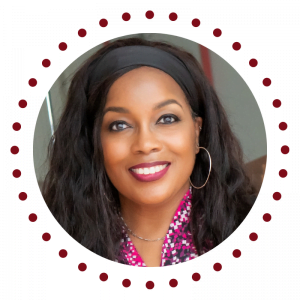
Want Karan to be Your Podcast Guest?
- Blended Workforces & the Gig Economy
- Critical Execution Tactics of High-performing Leaders
- Entrepreneurism & Leading Your Business

Want to be a Podcast Sponsor?
All sponsorships come with a featured spot on show notes pages.
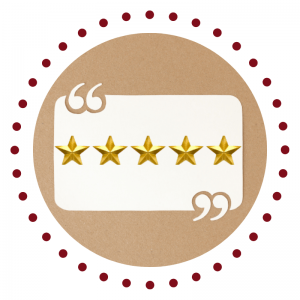
Like the Show? Please Leave a Review
If you like the show, it would mean the world to her if you left a quick review.
Your word is golden, so a HUGE thank you in advance!

#KeepInTouch
via our podcast alerts
Subscribe now to discover why thousands of monthly listeners who are passionate about doing their best work prioritize time each week to listen to the Blended Workforces @Work podcast.
#AboutSDL
#WhereToFindUs
MAILING
4480-H South Cobb Drive
PMB 219
Smyrna, GA 30080
PHYSICAL
2121 NewMarket Parkway
Ste. 108
Marietta, GA 30067
#ContactOptions
Customer Service Email:
service@shockinglydifferent.com
Call or Text:
770-384-1103
#Office Hours
MON-FRI
8:30 AM – 6:30 PM
Weekends By Appointment

